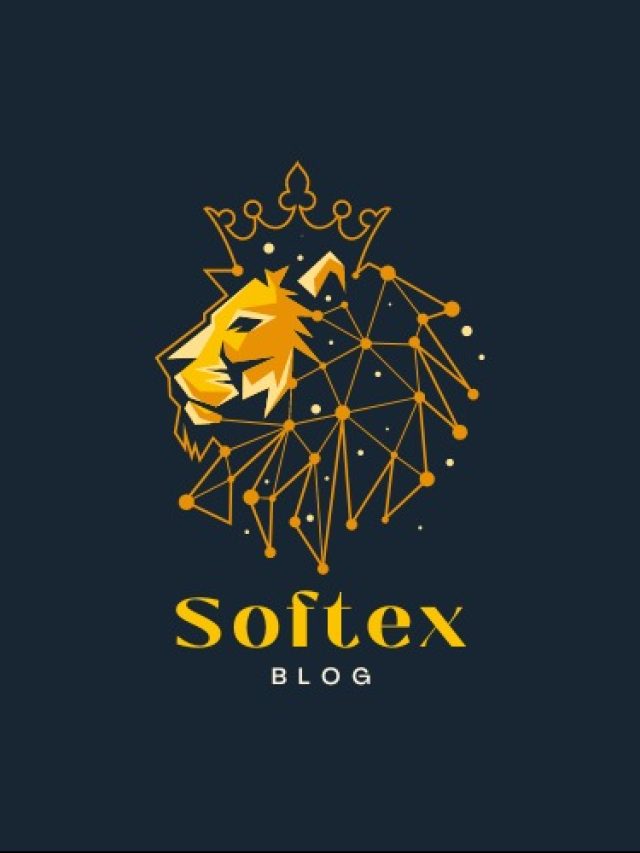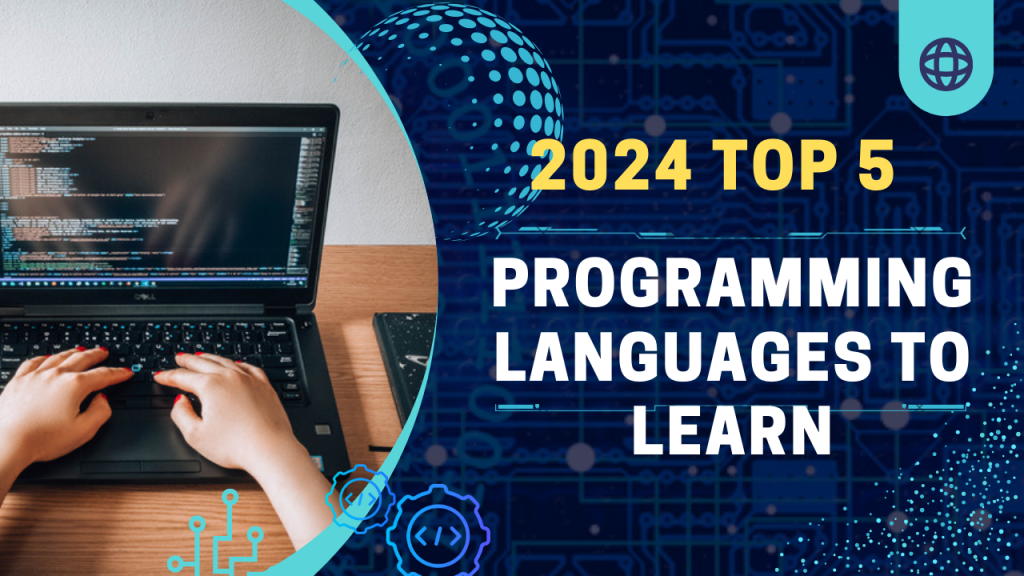Introduction:
The field of coding has gained tremendous popularity in recent years, with a growing demand for programmers in various industries. Whether you’re looking to build websites, create mobile apps, or delve into data analysis, learning to code is a valuable skill that can open doors to exciting opportunities. However, with the multitude of coding languages available, choosing the right one can be overwhelming for beginners. In this blog post, we will demystify coding languages and provide a comprehensive guide to help you find the best programing languages to learn and start your coding journey.
Understanding Programming Concepts and Languages
What are coding languages?
Coding languages, in simple terms, are sets of rules and instructions that enable us to communicate with computers. They serve as the medium through which we write code, giving computers the ability to understand and execute our instructions. Without coding languages, computers would remain unintelligible machines.
Core Programming Concepts
Before diving into specific coding languages, it’s important to grasp the fundamental programming concepts that form the building blocks of all languages. Variables and data types are essential concepts that allow us to store and manipulate data. Control structures, such as loops and conditionals, provide logic and decision-making capabilities. Functions, on the other hand, enable us to modularize code and reuse it whenever needed.
Front-end vs. Back-end Development
When it comes to web development, there is a distinction between front-end and back-end development. Front-end languages, such as HTML, CSS, and JavaScript, are responsible for creating the user interface and user experience of a website. Back-end development, on the other hand, involves the server-side aspects of a website, such as handling databases and server requests. Some popular back-end development languages include Python, PHP, and Ruby.
Compiled vs. Interpreted Languages
Coding languages can be classified into two categories: compiled and interpreted. Compiled languages, such as C++ and Java, are converted from the source code into machine code before execution. This process results in faster execution but requires an additional step of compilation. Interpreted languages, like Python and JavaScript, are executed line by line, without the need for compilation. While interpreted languages may be slower, they offer increased flexibility and ease of debugging.
Popular Coding Language Paradigms
Different coding languages adhere to specific programming paradigms, which dictate the approach and style of coding. Imperative programming, followed by languages like C, Python, and Java, focuses on providing explicit instructions. Object-oriented programming, represented by languages like Python, Java, and C++, focuses on organizing code in terms of objects and classes. Functional programming, seen in languages like JavaScript, Haskell, and Lisp, emphasizes immutability and the use of pure functions.
Also Read: 10 Best Free AI Content Generator websites Review & Comparison
Best Programing Languages to Learn for Beginners
Python
Python is widely regarded as one of the best coding languages for beginners. It boasts an elegant and easy-to-read syntax that aids in understanding and writing code. Python is also highly versatile, finding applications in various domains such as web development, data analysis, and artificial intelligence. Additionally, the Python community is incredibly supportive, with extensive documentation and numerous resources available for beginners.
JavaScript
JavaScript is a must-learn language for anyone interested in front-end web development. It is used extensively to add interactivity and dynamic elements to websites. JavaScript’s widespread adoption and compatibility make it an essential language to master. Moreover, it has a rich ecosystem with countless frameworks and libraries, such as React and Angular, that simplify and enhance the development process.
Ruby
Ruby is often praised for its simplicity and readability. Its intuitive syntax and user-friendly design make it an excellent choice for beginners. Ruby is primarily used for web development and prototyping, offering a productive environment for building web applications. The emphasis on simplicity and productivity in Ruby makes it a top choice for those starting their coding journey.
Java
Java is a well-established language that is widely used in enterprise-level software development. It has a strong object-oriented programming foundation, making it ideal for building complex applications. Java’s versatility and wide range of libraries make it a valuable language to learn, as it opens up opportunities in various industries.
HTML and CSS
While not technically programming languages, HTML and CSS are fundamental to web development. HTML provides the structure and content of a website, while CSS adds the visual design and styling. These languages are relatively simple to learn and provide a solid foundation for aspiring front-end developers.
Resources and Tools for Learning Coding Languages
Online Learning Platforms
Online platforms like Codecademy, Udemy, and Coursera offer extensive coding courses that cater to beginners. These platforms provide interactive coding exercises and projects, allowing learners to practice and apply their knowledge in a hands-on manner. It’s advisable to read reviews and recommendations to choose the best courses for your learning style.
Documentation and Online Communities
Official language documentation is a crucial resource for understanding the intricacies of a coding language. Online communities and forums, like Stack Overflow, are treasure troves of knowledge and expertise. They provide valuable support, allow for the exchange of ideas, and offer opportunities to receive feedback on coding projects.
Integrated Development Environments (IDEs) and Text Editors
IDEs, such as Visual Studio Code, PyCharm, and Atom, offer a feature-rich coding environment that simplifies the development process. They provide features like code completion, debugging tools, and syntax highlighting. Choosing the right IDE or text editor can significantly enhance your coding experience.
Coding Bootcamps and Coding Challenges
Coding bootcamps provide an immersive learning experience and are an excellent option for those seeking intensive coding training. These programs often focus on practical, industry-relevant skills and provide valuable networking opportunities. Participating in coding challenges and competitions can also improve your skills and boost your confidence as a beginner.
Building Personal Projects and Open Source Contributions
Creating personal coding projects allows you to apply your skills and gain practical experience. Additionally, contributing to open-source projects provides an opportunity to learn from experienced developers and showcase your abilities. Displaying your projects on personal portfolios or platforms like GitHub is an excellent way to demonstrate your coding prowess to potential employers.
Assessing the Learning Progress and Next Steps
Continuous Practice and Application
Becoming proficient in a coding language requires regular practice. Building small projects and solving coding exercises help reinforce your understanding and improve your problem-solving skills. Real-world applications are the ultimate test of your abilities and provide great opportunities for growth.
Expanding Knowledge and Diversifying Skill Set
After gaining proficiency in your chosen coding language, consider learning additional languages to expand your skill set. Exploring specialized areas, such as mobile app development or data science, can open doors to exciting career prospects. It’s also essential to understand the broader technology landscape and stay informed about emerging trends.
Seeking Support and Collaboration Opportunities
Joining coding communities and user groups allows you to interact with like-minded individuals, ask questions, and seek guidance. Engaging with mentors who can provide valuable insights and advice can accelerate your learning journey. Collaborative coding projects and pair programming can help you hone your skills and learn from others.
Building a Professional Network
Leveraging social media platforms and professional networking platforms like LinkedIn can help you connect with industry professionals and like-minded individuals. Participating in local tech meetups and events provides opportunities to network, showcase your skills, and discover potential career opportunities.
Pursuing Further Education or Career in Coding
Depending on your aspirations, pursuing higher education degrees in computer science or related fields can further enhance your technical knowledge and open up advanced career paths. Consider obtaining certifications relevant to your desired field to enhance your job prospects. However, it’s worth noting that a computer science degree is not always a prerequisite for a successful career in coding.
Conclusion
In this blog post, we have explored the best coding languages for beginners and provided a comprehensive guide to help you navigate the world of coding. Understanding the core programming concepts and exploring different languages is the first step on your coding journey. Remember to practice regularly, build personal projects, and seek support from online communities and mentors. By choosing the right coding language and investing time in learning it, you can embark on an exciting and fulfilling career in the coding industry. Start your coding journey today and discover the endless possibilities that await you.
FAQs:
- Can I learn multiple coding languages simultaneously?
Yes, learning multiple coding languages simultaneously is possible. However, it’s advisable to focus on one language initially and build a solid foundation before moving on to another. - Are coding boot camps a better option than self-paced online learning?
There is no definitive answer to this question, as it depends on your learning style and goals. Coding boot camps offer an immersive learning experience, whereas self-paced online learning provides flexibility and affordability. Choose the option that aligns with your preferences and needs. - How long does it take to become proficient in a coding language?
The time required to become proficient in a coding language varies depending on various factors, including your prior experience, dedication, and the complexity of the language. With consistent practice and determination, beginners can become proficient in a coding language within a few months to a year. - What are some challenges beginners may face while learning coding languages?
Beginners may face challenges such as understanding complex programming concepts, debugging errors, and maintaining motivation during the learning process. It’s important to approach these challenges with patience, perseverance, and the willingness to seek help when needed. - Do I need a computer science degree to become a professional coder?
A computer science degree is not a prerequisite for a career in coding. While a degree may open up certain opportunities, many successful programmers have acquired skills through self-learning, coding boot camps, or specialized training programs. Demonstrating your skills and building a robust portfolio of projects can be equally valuable in the coding industry.
Remember, learning to code is a journey that requires dedication and continuous learning. Don’t be afraid to make mistakes, ask questions, and experiment with different coding languages. Embrace the challenges and enjoy the process of discovering the best coding language for yourself. Get started today and unlock a world of possibilities!



